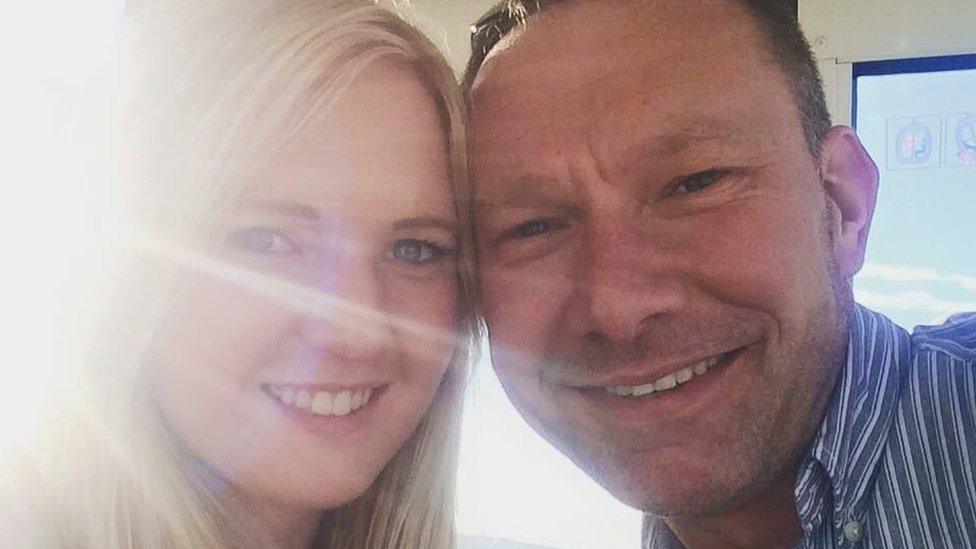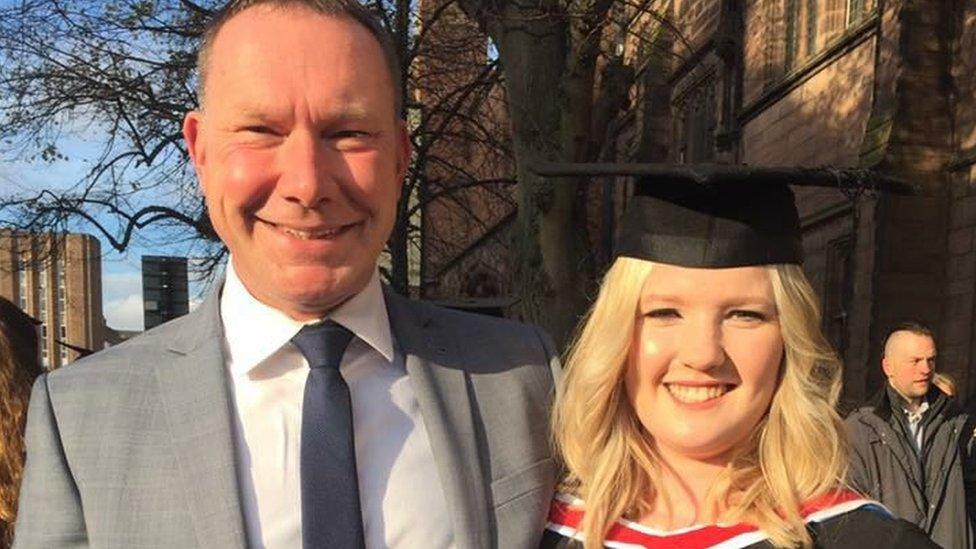Prostate cancer: How to talk to male family members
- Published

There were more deaths from prostate cancer than from breast cancer in 2017, for the first time in the UK - but are people talking about it enough?
Leia is 23 and her dad Phil was diagnosed when she was doing her GCSEs.
She says neither her or her dad knew what prostate cancer was or what the symptoms were.
"If we'd have known about the symptoms back then, I would have sat him down and made him go to the doctor earlier."
The NHS describes the prostate, external as a "small gland in the pelvis, found only in men. It's located between the penis and the bladder and it's main function is to help in the production of semen".
Although there have been celebrity-backed awareness campaigns, not everyone finds it easy to talk.
Allow X content?
This article contains content provided by X. We ask for your permission before anything is loaded, as they may be using cookies and other technologies. You may want to read X’s cookie policy, external and privacy policy, external before accepting. To view this content choose ‘accept and continue’.
But throughout his treatment, Leia's dad talked openly with her about his illness.
Leia suggests sitting male family members down and making them aware of the symptoms, external, which are often based around needing the toilet more frequently.
"I'd tell them that the PSA (prostate-specific antigen) test isn't invasive, it's just a simple blood test that could potentially save their life at the end of the day.
"Also, it's not something to be embarrassed about. Those symptoms could be a result of a number of different things.
"It doesn't necessarily mean they have prostate cancer but it is best to get the early diagnosis," she says.

Leia is now studying a PhD in Prostate Cancer Research
A survey by Prostate Cancer UK in 2016 found that awareness of the cancer was "dangerously low".
And as there are no standard screening processes available, it is usually diagnosed after visiting the doctor with symptoms.
Currently a combination of a PSA blood test, biopsies and physical examinations are all needed to diagnose it.
Phil, who is now cancer-free, described one symptom as needing the toilet more frequently throughout the night.
"I was getting up three, four, possibly five times.
"A lot of dads might not talk because many of the side effects are quite personal.
"Unless the children are aware these things are going on they might not be able to broach the subject.
"If they are aware of it, then they should definitely encourage their dad, or uncle or brother to talk about it and go and see a doctor if there's a problem."
Listen to Newsbeat live at 12:45 and 17:45 every weekday on BBC Radio 1 and 1Xtra - if you miss us you can listen back here